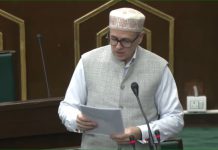The Supreme Court of India has scheduled a crucial hearing for May 15 on a series of petitions challenging the constitutional validity of the Waqf (Amendment) Act, 2025. The matter will be heard by a bench headed by Justice B.R. Gavai.
The petitions—filed by individuals, civil society groups, and legal activists—raise concerns over the alleged infringement of fundamental rights, including property rights, equality before law, and religious freedoms. The petitioners argue that the amended Act grants excessive powers to Waqf Boards, enabling them to declare properties as waqf land without fair legal procedures.
Key Allegations Highlighted in Petitions:
Unilateral Land Declarations: Critics claim the new law empowers Waqf Boards to take over properties without serving proper notices or giving the rightful owners a chance to defend themselves.
Violation of Article 300A: Petitioners allege that the changes undermine the right to property, which mandates legal safeguards before any deprivation of ownership.
Constitutional Disparity: The Act is also challenged for potentially violating Articles 14 and 15, by enabling discrimination based on religion in property matters.
Concerns Over Central Overreach: Some submissions question the increasing role of central authorities in a domain historically managed by state governments, raising issues tied to India’s federal structure.
Government’s Stand:
The Union Government has maintained that the amendments were made to streamline administration, ensure transparency, and prevent misuse of waqf assets. It asserts that the reforms will enhance the effectiveness of Waqf Boards in serving the intended charitable and religious purposes.
Background Context:
The Waqf Act of 1995 governs properties donated for religious or charitable purposes under Islamic law. The 2025 amendments introduced sweeping changes related to land surveys, acquisition procedures, dispute resolution, and enforcement powers of the Waqf Boards.
In recent months, several controversies and property disputes have emerged across multiple states, prompting calls for legal scrutiny of the law’s constitutional soundness.
Next Steps:
The Supreme Court is set to hear the matter in detail on May 15, with legal experts and stakeholders keenly watching what could become a landmark judgment on the intersection of religious rights, property laws, and constitutional protections.




